#voiceclass
Photo
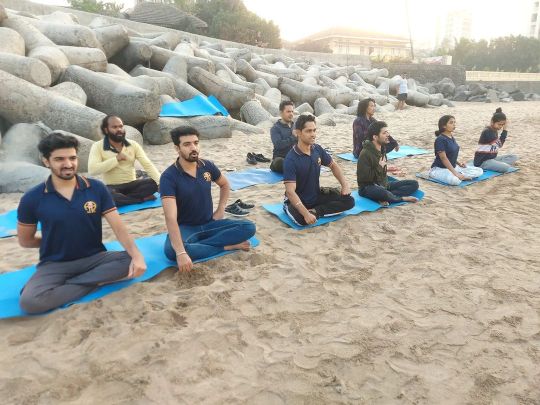
Voice Class @ Versova Beach today. www.abssgroup.com . . Rajendra Tiwari . . . #voice #voiceclass #abss #theatre #absstheatregroup #bollywood #theater #drama #classes #direction #hollywood #theatregroupmumbai #actinginstitute #besttheatregroupsinmumbai #actingschoolsnearme #actingclassesnearme #dramaschool #comercialtheater #trending #instagram https://www.instagram.com/p/CpIdkFMI_Pi/?igshid=NGJjMDIxMWI=
#voice#voiceclass#abss#theatre#absstheatregroup#bollywood#theater#drama#classes#direction#hollywood#theatregroupmumbai#actinginstitute#besttheatregroupsinmumbai#actingschoolsnearme#actingclassesnearme#dramaschool#comercialtheater#trending#instagram
0 notes
Text
ON SCORDATURA
When I was eighteen, I was really into heavy metal and had been practicing the electric guitar for four years. I was devoted to music theory and looked up to guitarists like Steve Vai. I played loudly and fast, emulating the popular style of playing when heavy metal was at its apex of popularity. You might say that I was a “shredder.”
My passion for technique took an unexpected turn, however, when I became fascinated by the classical guitar. I don’t exactly remember when it hit me, the inspiration to explore this type of playing. It might’ve been born from reading the name of Andres Segovia in the magazine interviews of my favorite guitarists. (Also, I listened to a lot of Jethro Tull, and the intro to one of his songs is a quotation of a popular classical guitar score by Bach, the “Bourée in E Minor.” I started teaching it to myself by ear, but soon realized I needed help adjusting to the new technique).
One day I made the decision that I wanted to take the plunge into the classical world. I purchased a cheap nylon string, looked for a tutor and, once I found one in Chapel Hill, NJ, I started taking lessons and practicing every day.
I was enthralled by the new possibilities in this style of playing. I was discovering a wealth of textures and styles I’d had no previous idea about. My parents had not listened to classical music, so all of this was foreign to me. But I fell in love with the genre all the same.
I loved how old this practice was, how its provenance dated back to before there was electricity. I loved the deceptive simplicity of paper scores, how the mere act of sight-reading might open up varied worlds of expression, limited only by the player’s willingness to learn the technique and the player’s ability to perform.
My tutor included Renaissance lute scores in his homework for me. These scores contained instructions for alternative tuning arrangements of the strings. This changes the whole grid of the fretboard. Each string has been tightened or loosened to different notes, so all the note relationships are changed. If you wanted to play the same material you would have to relearn it with new fingerings.
But that wasn’t the point. The scordatura was designed to make available new sonorities. These lute pieces dating back to the Renaissance had a “harpier” texture, with open notes ringing out in different keys and mixtures of notes in registers I didn’t often hear in guitar music with traditional tuning. It was rather exotic, like the simple act of turning a screw on a taut string had turned this plain old Spanish guitar into some new, esoteric instrument.
My experience with classical guitar, and specifically the scordatura my tutor taught me, was a factor later in life when I played bass guitar professionally in the mid 2000’s. Not only do I think that it made me flexible enough to feel confident learning to play another stringed instrument, but it also influenced my tuning. I utilized what’s called Drop D tuning, a simple type of scordatura that lowers the heaviest string by two notes. It gives you two extra lower notes you wouldn’t normally have with the standard tuning—where the lowest note is E.
Heavy metal guitarists love this tuning because of how much heavier it makes the music sound and because it ends up making power chord configurations a one-finger job instead of two, and you can play those heavy power chord riffs much more quickly with just one finger.
Drop D was useful to me, however, because of how it enabled me to interact with the songwriting. My band’s music was dark and a lot of the songs were in D minor. So having a lower D available permitted me to create pedal tones and deeper support functions for chords and textures that were already using that scale a lot. It added depth and character to the music because of this sort of flexible shadow figure moving around underneath the guitars and the keyboards.
I had a profound experience with scordatura later in 2014, while I was in acting school. One of our school productions was a kind of fantasia on Nabokov’s Pale Fire. The novel is already a bit of a fantasia itself, so the production was very post-modern.
The director, Alex Harvey, staged it brilliantly. One of his ideas was that my character would play passages on the piano between scenes. The score was from a series called Revelation by composer Michael Harrison.
Harrison had contrived a bespoke scordatura for the score. An assistant, a specialist who could interpret unconventional concert pieces like these, was hired to transform the school’s simple upright Yamaha, an instrument more often used as accompaniment for students singing from the American Songbook, into a piece of avant-garde machinery.
I had already begun learning some of the passages before the piano had been prepared. They sounded ok, but not extraordinary. Once the tuner was finished and the specific tuning had been accomplished, however, I began learning the pieces in earnest and it was, well, it was a revelation.
Harrison’s scordatura was wild. Some keys adjacent to each other were tuned only fractionally sharper than their predecessor on the keyboard, thereby creating a tonal cloud or wash between the two that sounded a little like an untuned guitar, but in a shimmery, beautiful way. Other keys were tuned a whole fifth from their predecessor, thereby jumping up very far between two adjacent keys. The two extremities canceled each other out to create a distinct sense of balance and harmony, a kind of timbral mist floating in the ether.
As I worked on the score I had a sense that I didn’t know what was happening. It was difficult for me to anticipate and conceptualize the piano with this exotic construction. Yet, reading through the score and performing it, the idea was actualized. A whole new musical sensibility was borne out of this tuning. It was thrilling to put into action such a strange and beautiful arrangement.
What would a trumpet sound like if one could alternate its tuning? It’s a ridiculous notion: it would require bending metal, destroying the instrument in the process. Scordatura is likewise impossible for woodwinds. Ditto, percussion. A timpani, the most obvious exception, is in fact quite flexible and can even be tuned during performance. The percussionist puts their ear to the skin and lightly taps so as to enable them to change the tuning without disturbing the performance of other orchestra members. But you can’t do that with, say, tubular bells.
Stringed instruments and the piano are different than all the other instruments. The oscillators, the strings themselves, are adjustable. Coupled with the fact of their polyphony, it’s plain why these instruments, especially the piano, are so popular. They are great adapters. They can be brought back to their mean and reset for future use in other circumstances. The ubiquity of these instruments, across genres, in barrooms and conservatories alike, is explained by their ability to avail themselves.
And what about the voice? How supple are the cords? Can they be stretched or loosened like the strings of a guitar? Is there a scordatura possible for the human vocal mechanism?
It’s debatable: vocal training, primarily through work in breathing, does fortify ones range by bolstering the lower and upper parts of the register with more support. But your vocal cords are your vocal cords. Even on a guitar, you can’t detune the strings too much. It affects the timbre: the fretboard is designed with a natural state of tension and that string that is being detuned is only thick enough to perform in a certain range before the slackening of the string makes it flap against the fretboard—or before the tightening warps the fretboard.
Vocal cords are similar in this way. Just like with a guitar, once you start “detuning” your voice, you invite corruption of the sound. Your voice cracks when you try to go too low.
When Olivier tackled Othello he tried to lower his voice through vocal training. Obviously, considering all of the other garish and offensive effects—the blackface, the funny walk, the stupid dialect—he should’ve known better than to engage in minstrelsy, but he also should’ve known about the corruption of his voice. Not all instruments have that level of flexibility.
He should’ve known that not everything is available.
What about the human being itself? Can it be construed as an instrument? one that might likewise permit a certain scordatura?
My feeling is that in this case the change is permanent. And, like with a trumpet, one risks destruction. The human being is not a stringed instrument.
I can attest to a certain kind of “permanent” scordatura of the body and mind. It was possible for me to “detune” myself, but it was a commitment to a new state. I won’t ever be able to “go back” to my original tuning. It involved deep structural shifts and I came close to collapse—and in fact did collapse—many times. The instrument—the body and the mind—was constantly at risk of crumbling and warping under the stress of the transformation. Slackening a string is one thing. Shortening or elongating a valve is another.
What is therapy but a type of spiritual scordatura? The patient comes in with a limitation in place and leaves with that “bar” set somewhere else. Thresholds are repositioned. Pain that was once unbearable can be stomached. New life experiences are permitted because the mind has been opened to their possibilities. It is a fact that the change is permanent, but after we recognize the evolution we would never want to “detune” back to where we were.
I have a long history with therapy and it is without question the source of all of the appetite for change that I’ve experienced. In teaching me about healing, it motivated me to seek out other forms of healing. I credit it with helping me gain acceptance to the prestigious MFA program in Acting which I entered in 2012 at NYU, the beginning of three years wherein this process of permanent scordatura would be hastened.
I had many illnesses. Some would find treatment through the program’s vast assortment of exercise techniques addressing body misalignment and spiritual imbalance. Yoga classes, Feldenkrais, Alexander technique, chakra work, these were all deployed to “tune” the bodies in class.
Voice and speech exercises as well helped bring awareness of lifelong limits, expressed through the mouth and in the breath. It was unnerving to encounter these intimate facts about how one walks, how one talks, how one moves, how one breathes.
Most people would never submit themselves to this level of scrutiny. A fellow alumnus with additional experience in the military often jokes that an MFA at NYU Grad Acting is actually more oppressive than boot camp because at least in boot camp you let your anger and hostility grant you relief—you can growl and yawp and hunch over and adapt to battlefields—whereas actors, despite undergoing similar rounds of abuse, must look smooth and collected and relaxed in order to perform well on stage. It really was a double whammy of having my being constantly interrogated in various invasive manners, all while being denied any permission to sublimate the tension.
I had my own motivations to undergo this training. I was desperate to have a classical training in the theatre. But I was also subconsciously motivated towards healing. Despite the horrors of these ordeals, the modalities that are therewith deployed are part of a healing experience that, having undergone them, I wouldn’t trade for anything. Had I known what I was getting myself into beforehand, I don’t know that I would’ve jumped in the pool. But I’m glad I didn’t know because I cherish the experience.
I had a problem with keeping my mouth only partially open which our singing teacher was constantly bringing my attention towards. She had taught me that this was a defense mechanism, a strategy of containment, a means of keeping the world from having access to my heart. (Of course, keeping your mouth closed is also a problem for sound projection on stage, but that’s more technical).
During one afternoon class, singing “Lonely Room” from Oklahoma, I broke down into tears as the teacher kept coaxing me to open my mouth more and more. There I was, a man pushing 40, with tears streaming down his eyes, opening his mouth wide, not even singing the words, just the vowels, but doing something that was so psychically threatening, something that I could never bring myself to do, something simple, like opening a mouth. The limit had been expanded.
There was an element of bodily restructuring to all of this as well. I had done a number on my body during those years of my professional musicianship, when I toured the world in a famous band. And so by this point, I was aware that a shift was needed from the effects of years spent in front of cameras and abusing drugs and traveling and losing sleep. Alice Miller’s book, The Body Keeps the Score, is instructive in this regard. Somatization of traumas explain a great deal of certain physical ailments. In my case, they played out structurally, on my bones and on my muscles and in my central nervous system.
These changes are subtle to the layperson. But they are profound for the student. When I look at how I held my body in old photos, it is obvious to me that there was something wrong. On the stage, with a heavy instrument hanging from my shoulder, it wasn’t perceptible. The lights and the postures have a way of masking the truth. But in the more candid and private shots—the Polaroids and the exposures from my disposable camera which my friends and I took in our apartments—I see evidence of a lot of tension. Shoulders crept upwards towards my ears; chest muscles held; an exploded solar plexus; a chin pointing up. It was a mixture of a lot of holding, a lot of somatization in the fibers, with a learned posture organized to communicate the persona I wanted everyone to see: a demiurge or rockstar.
I came into grad school as though off an assembly line, where the factory had riveted and hammered onto my body and psyche its lessons. It was a capitalistic factory but it was also a societal one, one that bore the hallmarks of the dogged problems which elude solution: childhood trauma, dog-eat-dog meritocracy, bullying, etc.
So now I was this product getting recalled, but I was going to another factory for refurbishment. One that also had rivets and hammers, but ones which were designed to break open the right parts.
I stretched and stretched. By the end of the three years I was essentially exiting with a new body. The myth about the seven year cellular regeneration in one’s body is instructive here. For it truly was the case that new grooves in my brain and muscular and skeletal patterns had taken hold. One of my teachers said during my final evaluation that I had come in to school looking like a clothes hangar with legs but that I now looked graceful.
Even my scoliosis—a condition I was born with and which I will contend with for the rest of my life—was discovered in acting school. I had had no idea about it before one of the teachers told me that I persisted in leaning downwards to my right. My spine curves in the shape of a sidewards C. It’s a genetic condition. Of course, hanging a ten-pound instrument off my shoulder and letting the weight pull me down to the ground so that I could look cool every night didn’t really help either.
The modalities in the movement and vocal training classes in acting school are designed to build awareness and flexibility in the body and the mind. The purpose of this is to permit the actor to be resilient enough on stage so as to be present and believable. So it has a practical purpose and a real-world application.
I had other problems which these modalities could not fix, but which their steady application, encouraging honesty and reflection, revealed. There were addictions and mental illness issues which I’d had no idea about before entering grad school but which were inflamed by the pressure inside. I then had to deal with them. Immediately, since they threatened the goal of getting my MFA.
The cocaine abuse of my years in the music industry haunted me in the form of paralyzing panic attacks and circadian disruptions which complicated my ability to perform in school. The years spent pursuing rampant and anonymous sexual congress created inappropriate obsessiveness with orgasms and romance. Naturally, given that my peers were all considerably younger than I was, this last part wasn’t all that abnormal. But it interfered nonetheless. I was no spring chicken but I was acting like one. I had to double down on sex addiction meetings and on therapy.
It all came to a head inside the cloistered walls of the conservatory. It came to a head when Alex Harvey, the director of the Nabokov rendition, had to massage my shoulders backstage as I collapsed in tears during one of many nervous breakdowns. It came to a head when in a movement class, during an unfamiliar physical exploration, an early painful memory of abandonment that had long been forgotten had been recalled and sent me to the floor sobbing.
I’m grateful that I had the means to address the issues. I had to juggle that with the demands of the curriculum. It was not easy. But I’m proud of my accomplishment and I’m proud of the new person this all made me become.
It is possible to “detune.” I think a better way of looking at it is “retuning.” It is a permanent scordatura and it therefore should not be taken lightly.
#conservatory#scordatura#alternativetuning#movementclass#voiceclass#mfa#nyu#nyugradacting#feldenkrais#yoga#alexander technique stretch and breath classes#classical guitar#heavy metal#dropd#renaissance#michael harrison#alex harvey#revelation
14 notes
·
View notes
Photo

Voice class was phenomenal. Class should have lasted longer. This was a beautiful escape for me from the forlornness and mental torture I endure on the daily. I struggled within, but I actually to stick through the end. Sadly, this is my last music class, it seems... Until the next one... I am thankful for Dr. Parnell, and Gary for reinvigorating my passion for singing for the time being and meeting such great people such as Laura, David, Amira, Nassiem, Taylor, Jasmine, DJ among others. It was great. Thank you. #musicclass #voiceclass #singing #parnell #dennisparnell #euphoria (at Santa Monica, California)
1 note
·
View note
Photo
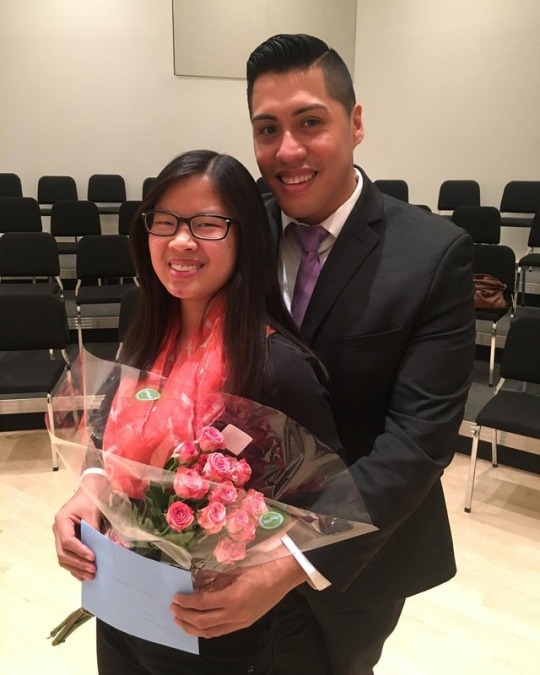
"Let's do a prom pose!" "Wait is this legal?!" 😆😆😆 From the voice class final concert last night! Shoutout to DR. Sierra for another great semester of music. Thanks truly for everything you've taught me and the experiences given that I'd never thought possible. Such a lit ending to the birthday lol. When you madre that Face When we told you we changed the song in secret, I DIED 🤣🤣🤣 Congrats on your DMA!!! Will definitely miss you!! And now we can all sleep and not stress about anymore shows lmfao (haven't slept since 9:30AM yesterday 😆) #voiceclass #concert #finalconcert #vocalmusic #music #musician #singer (at Nicholas Music Center)
0 notes
Photo
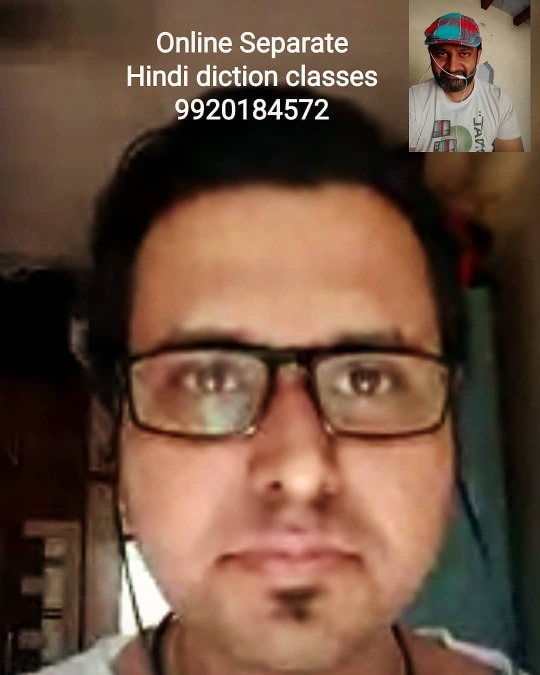
Online separate Hindi diction classes #hindidictionclasses #hindilearning #classes #dictionclassesforactors #dictionclassesinMumbai #onlinelanguageclasses #onlineclasses #classesathome #onlinedictiontraining #onlinehindidictionclasses #personaltraining #personalHindidictionclasses #voiceandspeech #voiceandspeechclass #voice #voiceclasses #speechtherapy #speech #speechclass https://www.instagram.com/p/B_4BBk3lFQS/?igshid=n0v2n1fvvsxo
#hindidictionclasses#hindilearning#classes#dictionclassesforactors#dictionclassesinmumbai#onlinelanguageclasses#onlineclasses#classesathome#onlinedictiontraining#onlinehindidictionclasses#personaltraining#personalhindidictionclasses#voiceandspeech#voiceandspeechclass#voice#voiceclasses#speechtherapy#speech#speechclass
0 notes
Photo

Fill up this form to reserve your slot. https://forms.typeform.io/to/j8sb77tL67 #VoiceLessons #SummerWorkshop #CaviteVoiceLessons #SVStudios #VoiceClass #MusicLessons (at Addas 2 Molino Bacoor Cavite)
0 notes
Photo

#blockparty #partypeople #booker #normal #soundmusic #band #singinggroup #partymusic #playlist #hiphop #reggaeriseup #musicpromotion #musicnetwork #musicteam #roadmanager #musicshow #performers #musicsupervisor #musicclub #touringartist #musicians #backgroundsinger #voiceclass #leadsinger #soloartist #musicmanager #superstar #musicfan #talent #musicproducer https://www.instagram.com/p/BwDuaOzne2R/?utm_source=ig_tumblr_share&igshid=1ir7nt5aexfj9
#blockparty#partypeople#booker#normal#soundmusic#band#singinggroup#partymusic#playlist#hiphop#reggaeriseup#musicpromotion#musicnetwork#musicteam#roadmanager#musicshow#performers#musicsupervisor#musicclub#touringartist#musicians#backgroundsinger#voiceclass#leadsinger#soloartist#musicmanager#superstar#musicfan#talent#musicproducer
0 notes
Photo

It is very important to have knowledge of voice for acting because through voice we can create many things. Nothing happens just by practicing, it is very important to practice in the right way in the right direction. www.abssgroup.com . . @rajendra__tiwari @kushalkanani777 @ravichhabraofficial . . . #voice #voiceclass #abss #theatre #absstheatregroup #bollywood #theater #drama #classes #direction #hollywood #theatregroupmumbai #actinginstitute #besttheatregroupsinmumbai #actingschoolsnearme #actingclassesnearme #dramaschool #comercialtheater #trending #instagram https://www.instagram.com/p/Co2PfyjJJ5Q/?igshid=NGJjMDIxMWI=
#voice#voiceclass#abss#theatre#absstheatregroup#bollywood#theater#drama#classes#direction#hollywood#theatregroupmumbai#actinginstitute#besttheatregroupsinmumbai#actingschoolsnearme#actingclassesnearme#dramaschool#comercialtheater#trending#instagram
0 notes
Photo
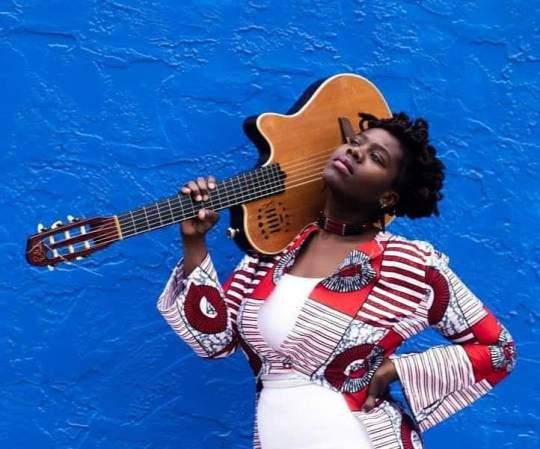
LET THEM GROW BENEFIT CONCERT — THE CHILDREN'S VOICE CHORUS https://www.thechildrensvoice.org/letthemgrowbenefit The Children's Voice (👍🏽) TODAY IS THE FINAL DAY to reserve an upgraded watch experience for LET THEM GROW! Be sure to claim your food and wine party as soon as you can. RAFFLE TICKETS are also available until Saturday, and our lucky winners will be announced during the concert. We can't wait to find out who will win the PRODUCT(RED) iPhone 12 and other amazing gifts! Head to the link in our bio to reserve your experience and tickets. ~ Jamie Perez Sutta Laurah Merisier @thechildrensvoice @jamiesutta @inezbmusic *Inez Barlatier Meet Inez Barlatier - Voyage MIA Magazine | Miami City Guide http://voyagemia.com/interview/meet-inez-barlatier/ 🎥 @likesuperclutch 🎟 @culturedinnovations @nailsbyellie._ @apple @americanexpress @mydermaclinic ---------- @haitilegends @iamgabrisan HAÏTI ⭐ LEGENDS (22K) (Click on the # 👈🏽) #childrenschorus #JamieSutta #LaurahMerisier #InezBarlatier #thechildrensvoice #thechildrensvoicechorus #cvc #LetThemGrow #ImagineIfEveryVoiceCouldBeHeard #virtual #sing #singing #voiceclass #singingclass #music #musicclass #musicianship #musicianshipclass #chorus #choir #childrenschoir #kidschorus #kidschoir #miami #southdade #palmettobay #floridacity #Haitilegends #iamgabrisan https://www.instagram.com/p/CMN68ZZD6h6/?igshid=xeyi81g35shy
#childrenschorus#jamiesutta#laurahmerisier#inezbarlatier#thechildrensvoice#thechildrensvoicechorus#cvc#letthemgrow#imagineifeveryvoicecouldbeheard#virtual#sing#singing#voiceclass#singingclass#music#musicclass#musicianship#musicianshipclass#chorus#choir#childrenschoir#kidschorus#kidschoir#miami#southdade#palmettobay#floridacity#haitilegends#iamgabrisan
2 notes
·
View notes
Text
INTRODUCING KIERA :
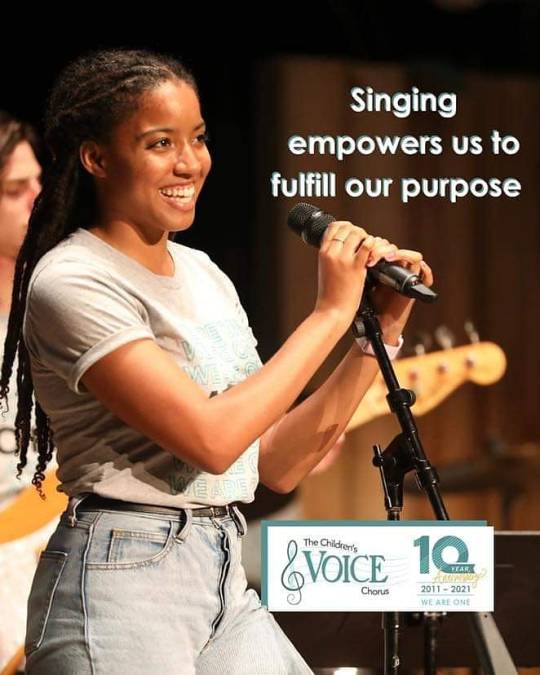
The Children's Voice :
"KIERA joined CVC in 2011. She is a graduate of homeschooling/Florida International University dual enrollment and is currently attending Mount Holyoke Women’s College as a POSSE scholar, studying Sound Engineering.
👩🏾🎓🎧
Kiera says “My CVC experience through opportunities within performance, travel and leadership has shaped the way I view the world and myself within musical spaces and outside of them. My fondest musical memory is standing in the St. James Cathedral as a CVC student at a choral festival and the purpose I felt in being a part of something bigger than myself.”
✈️🎤
Support us in empowering more students like Kiera. Make your pledge for Give Miami Day by clicking the link below.
👇🏽
https://forms.gle/D8Kq7awZgCc7AzYNA
----------------link to bio
Instagram @haitilegends
Give Miami Day
CVC Cover Tunes :
(Featuring Kiera)
🎥 🎶 Landslide (Fleetwood Mac)
https://youtu.be/b5jKJ9duZF4
🎥 🎶 Is This Love (Bob Marley)
https://youtu.be/fHmZLhEvbtg
HAÏTI ⭐
LEGENDS
#givemiamiday #November19 #empowerment #artistry #Kiera #excellence #sing #singing #voiceclass #singingclass #confidence #music #musicclass #chorus #childrenschorus #childrenschoir #kidschorus #kidschoir #miami #southdade #palmettobay #floridacity #thechildrensvoice #cvc #thechildrensvoicechorus #CVC
#RisingStars #Singers
#HaitianAmerican
#Haitilegends
1 note
·
View note
Photo
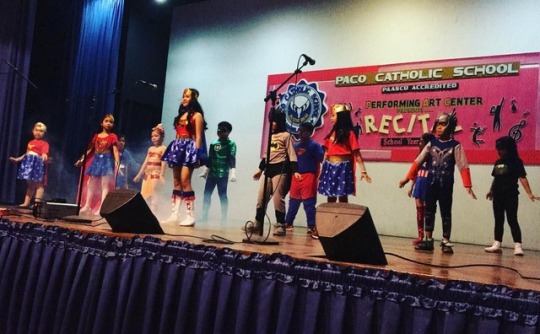
My super-babies. Great job! I'm proud of you all. #PacoCstholicSchool #Voiceclass #performingartscenter #PCS #SvStudios #Supervoice #SV #Voice #Singers
0 notes